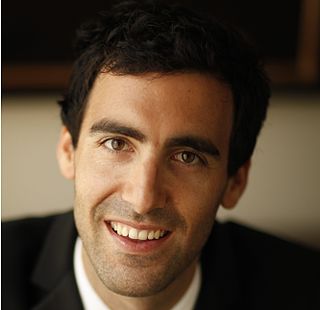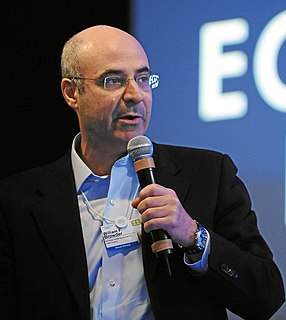A Quote by David Ignatius
If you want better behavior from bankers, then make their financial incentives more like those in the hedge-fund world - where managers have 'skin in the game,' and their net worth is tied to their long-term performance.
Related Quotes
I think there are probably too many hedge fund managers in the world, as well as active fund managers. The hedge fund industry is very efficient. We see a lot of hedge funds open and a lot close. It's very binary. You either succeed or fail in the hedge fund world. If you succeed, the amount the managers make it beyond most people's wildest dreams of wealth.
I mean, the people who got us into these crises - whether we're talking about the bankers or the hedge fund managers, or we're talking about the IMF - it's become pretty clear that the price to be paid for their illegal financial shenanigans, the burden is being placed on working class people, on the poor, on the elderly, on young people. It's become clear that neoliberal policies aren't just interested in "solving" an economic crisis, these are policies designed to enrich corporations and bankers and the rich at the expense of everybody else.
I believe that the behavior of too many of our corporations investment bankers and fund managers has jeopardized some of the trust that investors have had. It's not the economic engine that we need to focus on, but the need to make sure that our investors receive their fair share of the returns that that great economic system produces.
When a hedge-fund guy gets lucky because the market goes up, and he is going to make $200m, and you know $200 million, and he is going to pay almost no tax. I don't think that is a good thing for the country, and they are all supporting Jeb Bush and Hillary Clinton, all the hedge-fund guys. I don't want their support, because I'm totally self-funding my campaign.
The way to make better decisions is to make more of them. Then make sure you learn from each one, including those that don't seem to work out in the short term: they will provide valuable distinctions to make better evaluations and therefore decisions in the future. Realize that decision making, like any skill you focus on improving, gets better the more often you do it.





































